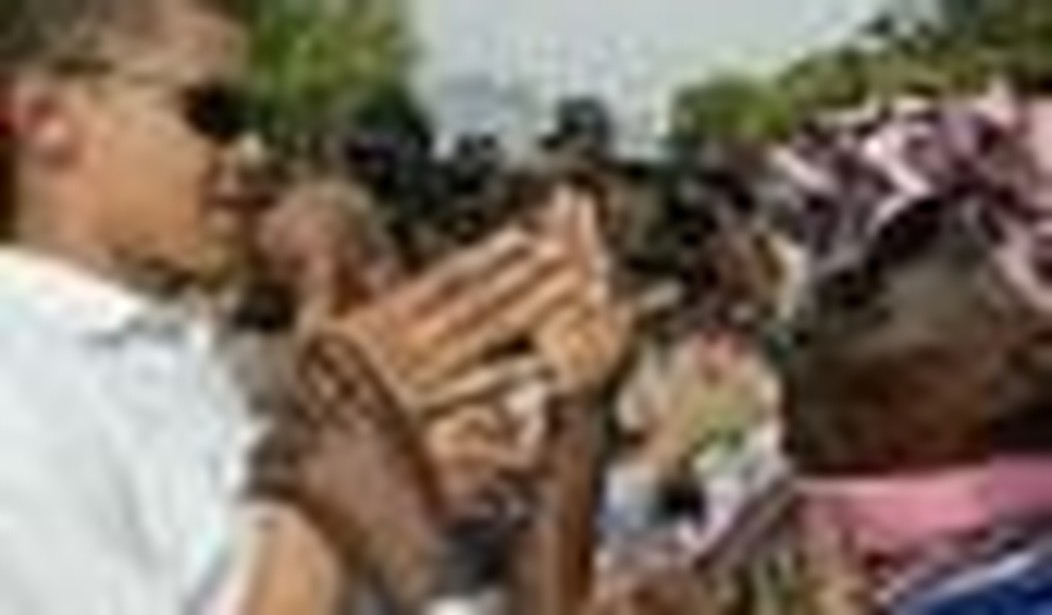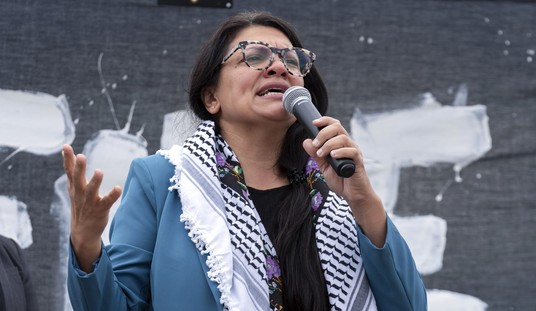I find it amusing and ironic that I’ve been following this year’s race for the White House much more closely than most of my American friends. Many are politically apathetic, and a few — including a U.S. Marine — don’t even plan to vote. While I am neither American nor living in the United States, the results of the elections hold great importance for me. And why shouldn’t they?
The global impact of U.S. foreign policy is undeniably significant. It can and does send rippling tremors throughout the world, good ones and bad, especially towards the regions I come from — the Middle East and North Africa. The things that specifically interest me are:
- foreign policy towards Sudan
- genuine promotion of democracy
- future plans for the two current American-led wars
- net neutrality (the open tradition and architecture of the internet)
Health care doesn’t. Sincerity and well-thought-out strategies on the above four issues are what I desire and primarily look for in the offerings of the three current presidential candidates.
As a Sudanese, I have witnessed firsthand what American foreign policy under both Republicans and Democrats can do to a country like Sudan. It can inflict pain or alleviate it. Bill Clinton’s did the former. He bombed a pharmaceuticals factory which produced a large chunk of the country’s medical supplies, alleging that it manufactured chemical weapons when it didn’t. He enforced sanctions that did little to affect the regime and instead ended up making life for the average Sudanese more miserable. He could have also had bin Laden handed to him on a silver platter — and possibly prevented 9/11 — but he ignored the opportunity when it was offered to him by Khartoum.
As the north-south civil war raged, the Democrat administration fanned the flames and poured more fuel on an already horrendous inferno by financially and militarily backing the SPLA against Khartoum. While I am happy that my fellow countrymen in the south found the means to defend themselves and fight for their freedom, I wasn’t exactly cheerful over Clinton’s strategy. All it did was prolong the war. Friends and family continued perishing and the enormous suffering of the southern Sudanese persisted with no end in sight. Little did we know then that the peace we hopelessly dreamed of was just around the corner.
Then George W. Bush, a Republican, was elected as the new president of the United States. Unlike Clinton, the Bush administration dedicated a great deal of time and resources into pressuring Sudan to end the longest war of the past century, and it succeeded. A few years of relentless diplomacy behind the scenes finally led up to the monumental signing of the Comprehensive Peace Agreement in 2005. At last, the blood of countless innocent Sudanese stopped spilling. Our long war, one which killed millions, finally came to a grand halt, and it all wouldn’t have been possible without the immense pressure exerted by the Bush administration.
Conditions in Khartoum aren’t anywhere near rosy, but the improvements we’re enjoying today are significant. While the implementation of all aspects of the CPA and Sudan’s democratic transition aren’t going smoothly, the smell of freedom is distinctly clear compared to a few years ago. Christians this year celebrated Easter openly in a way difficult to imagine during al-Turabi’s early days in power. The CPA was undoubtedly Bush’s most noble foreign policy achievement and I am grateful for it, but unfortunately — yes, it’s time for the dreaded “but” — it was offset by the great blunders his administration made elsewhere in the overall War on Terror.
I’ve been a supporter of the war in Afghanistan from the start since I believe it to be necessary. I would absolutely love to see a magnificent end to al-Qaeda and their monstrous butchery. Unfortunately, things didn’t turn out as planned by the Bush administration. Al-Qaeda lives on and so does the Taliban. Promises made to reconstruct Afghanistan were broken. While I am still supportive of the mission, I am disheartened by the failures but not nearly as much as by the catastrophes of the other war I didn’t support — the looting, the collapse of basic security, Abu Ghraib, and the list goes on. No WMDs were found and all of a sudden the rhetoric became about installing democracy in Iraq, something I initially found laughable and viewed very suspiciously, given the contradictory fact that the United States supported people like Mubarak and the House of al-Saud. The final straw was the appalling CIA-led outsourcing of torture to the very countries America accuses of human rights abuses.
My feelings towards the Bush administration were conflicted. They still are but to a lesser extent. On one hand I heartily appreciated what it did for Sudan and on the other, detested the blunders it committed in Iraq. The suffering that the mismanagement of the war brought to Iraqis was horrible but it never came close to the viciousness of al-Qaeda and Muqatada’s followers in what ensued. Hence, my anger eventually shifted towards the terrorists and Iran.
The situation changed drastically and I no longer viewed the war through a simplistic lens. It was pointless opposing something that already happened anyway. The invasion wasn’t going to undo itself. If the United States withdrew back then, a bloody civil war and possibly even genocide would have engulfed Iraq. More importantly, if a withdrawal occurs too quickly today, havoc will certainly follow. Regarding the American support for the Mubarak and Saudi regimes, the truth is that the democratically chosen alternative would be worse. Promoting democracy in the absence of liberalism can be a recipe for disaster, as demonstrated by Hamas’ election in Palestine. As for oil being the reason behind this war, economically it’s unfeasible. The war’s cost has already surpassed half a trillion dollars. This number doesn’t even take into account the negative economic effect of rising oil prices largely brought about by the very war which is supposedly for “oil.” On top of that, comparing the situation only to Vietnam’s decades ago is selective memory. Too many easily forget Japan and South Korea. Moreover, Michael J. Totten’s trustworthy blog and my conversations with numerous Iraqis — including PJM’s editor, Mohammad of ITM, whom I had the pleasure of meeting last year at a conference in Washington, DC — gave me a much better idea of what was happening in Iraq than the mainstream media ever could.
Through all the drama, one appealing Republican always stood out with his unique and independent stances — John McCain, an early staunch proponent for the “Surge.” I admired him and supported him as the best Republican presidential candidate for a number of reasons, including his “dinosaur” experience. One strong reason evaporated recently and I am left feeling extremely disappointed. After all his staunch objections to using torture, and after all the stories of how he himself endured it in Vietnam, he voted against the waterboarding ban! I was shocked by McCain’s betrayal of his own self-professed principles. Still, in spite of his decision, I’d prefer picking him over Hillary, whose tactics, constantly shifting contradictory rhetoric, and association with Bill Clinton completely turn me off. This brings me to the remaining contender for the White House — Barack Obama.
I like Obama. He’s an inspirational orator. The mere fact that he has come this far is a powerful testament to his political talent, America’s new positive reality, and the hope of which he speaks. In a time of great cynicism, he managed to uplift the spirits of the disillusioned. Some Republicans, like Susan Eisenhower, agree. Republicans for Obama feel the same way too. Even McCain himself praised Obama for attracting young voters. Some of Obama’s stances — and what sometimes comes across as fluff and naïve idealism — are what worried me, though. Luckily, I found significant substance in this interview he did with the Washington Post on his plans for the new direction of American foreign policy. The following stood out:
We benefit from the expansion of democracy: Democracies are our best trading partners, our most valuable allies, and the nations with which we share our deepest values.
Our greatest tool in advancing democracy is our own example.
I don’t think it’s the greatest tool but it’s definitely a prime one. America needs to stay true to the spirit of what it preaches.
Regarding Afghanistan, I am encouraged by Obama’s calls for a refocus on the mission there:
I will deploy at least two additional combat brigades to Afghanistan to reinforce our counterterrorism operations and support NATO’s efforts against the Taliban. …
I would increase our nonmilitary aid by $1 billion to fund projects at the local level that impact ordinary Afghans — including the development of alternative livelihoods for poppy farmers. And I will put tough anti-corruption safeguards on aid, and increase international support for the rule of law across the country.
In Pakistan, I will reject the false choice between stability and democracy. In our unconditional support for [Pakistani President Pervez] Musharraf, we have gotten neither.
This is good stuff.
Obama’s position on Iraq remains slightly vague but I strongly suspect he won’t fulfill his promise for a quick withdrawal. As far as I know, no high-ranking U.S. military commander in Iraq advocates the kind of withdrawal Obama’s been advertising. I believe he’s simply saying what his audience wants to hear. Samantha Power, who recently departed from the Obama campaign, strongly indicated that too.
Obama’s race speech is another thing I found lacking. The speech itself was a great one, but in terms of constituting a response to Wright, it wasn’t. Obama strongly criticized and distanced himself from the pastor’s remarks but not the man himself. Also, given that it’s the Democrats who’ve been calling for a withdrawal from Iraq and a forced military intervention in Darfur, I’m not exactly ready to comfortably embrace Obama just yet. Darfur needs a political solution. Going back to Clinton’s approach is the last thing Sudan needs. Bush’s is better although it lacks sufficient pressure now because al-Bashir’s regime is heavily cooperating with the CIA again in sharing highly valuable terrorism-related intelligence. Moreover, last year the CIA convened in Khartoum at a conference attended by more than 50 African intelligence agencies.
Tough choices, though choices.
Democrats I’m afraid are too hostile towards Sudan. Meanwhile, Republicans are easing pressure over Darfur and the CPA’s implementation in return for valuable intelligence. Neither is good but the former is the lesser of two evils. I believe the hostility will inevitably soften once reality kicks in to a level that isn’t potentially dangerous, but yet sufficient in terms of the positive pressure it produces. Regarding genuine democracy promotion, I feel Obama will handle the task better even if I fear he won’t be tough enough. Stabilizing Iraq and withdrawing responsibly is a job I trust McCain with more than Obama. As for Afghanistan, Obama’s plans are better than McCain’s, and so are those for net neutrality and the internet.
My ideal candidate would be the best of an Obama-McCain combination. Nevertheless, reality dictates otherwise. Words are fine but staying true to them is more important and I find Obama more consistent than McCain. Thus my leanings — while not final — are Barack Obama, John McCain, and nine yards away, Hillary Clinton.
Drima is a freedom-loving, Afro-Arab Sudanese Muslim. When he’s not busy studying or pursuing other endeavors, he makes his own music and blogs at The Sudanese Thinker. He’s currently writing a book about liberalism and new media.









Join the conversation as a VIP Member